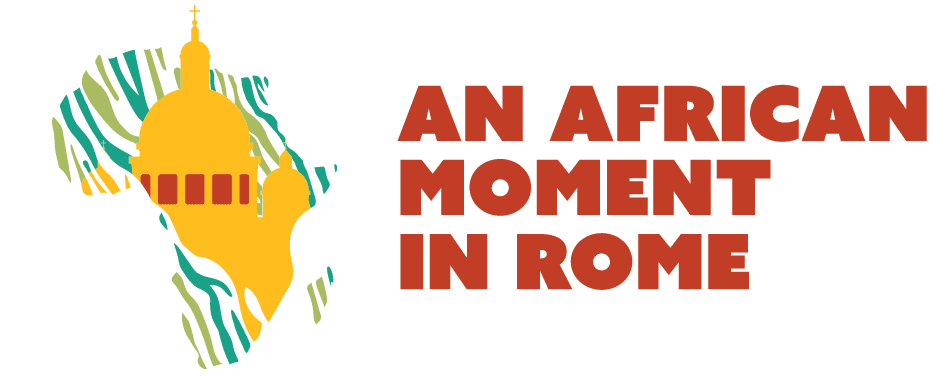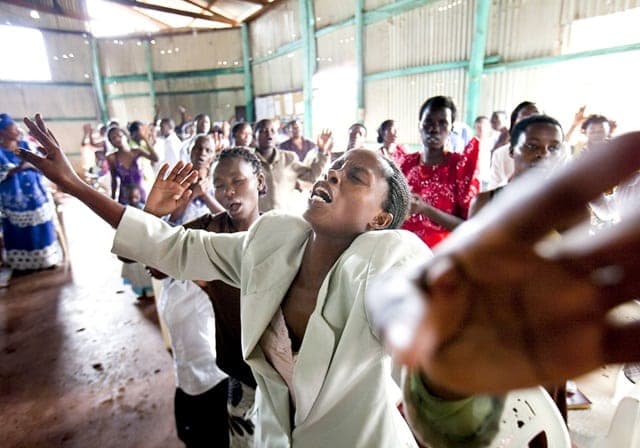 ROME — African Catholics often say that deep respect for religion and a pervasively spiritual worldview on the continent are among their Church’s greatest resources, and of course that’s true. Catholicism doesn’t expand its population in Africa by almost 7,000 percent during the 20th century without planting in awfully fertile soil.
ROME — African Catholics often say that deep respect for religion and a pervasively spiritual worldview on the continent are among their Church’s greatest resources, and of course that’s true. Catholicism doesn’t expand its population in Africa by almost 7,000 percent during the 20th century without planting in awfully fertile soil.
The same qualities, however, also form a double-edged sword, because the same qualities that dispose Africans to Catholicism also attract them to other options, making Africa arguably the world’s most competitive religious marketplace.
Today the primary competition stems from Africa’s sprawling galaxy of Pentecostal and Evangelical churches, some part of global denominations but most home-grown. In many parts of the continent, these churches dot every village square and street corner, and signs, billboards, and flyers touting their high-octane worship and miraculous claims are ubiquitous.
A 2011 study by the Pew Research Center found there were 122 million Pentecostals and 110 million Evangelicals in Sub-Saharan Africa, meaning their combined total at 232 million outpaced the number of African Catholics at 200 million. Given explosive growth rates, it’s likely that gap has widened over the six years since the survey.
More worrying for Catholicism is that at least some of that expansion is fueled by defections from the Catholic Church.
“Everyone knows at least one person who has left the Church to become a Pentecostal,” said Obiageli Nzenwa, a Catholic lay woman and independent human resources consultant in Abuja, Nigeria.
“The growth rate of Pentecostal churches is coming at the expense of the Catholic Church,” she said.
Nzenwa spoke at a March 22-25 summit on the future of African Catholicism in Rome titled “African Christian Theology: Memories and Mission for the 21st Century,” sponsored by the Center for Ethics and Culture at the University of Notre Dame.
Reflections of the pressures put on Catholicism by that competition surfaced repeatedly through the summit.
Father Bede Ukwuije of Nigeria, for instance, said that some Catholic parishes in Nigeria are rapidly, and often uncritically, expanding their use of dance and popular music in the liturgy, in order to keep pace with the exuberant modes of worship offered by Pentecostal churches.
Father Ludovic Lado, a Jesuit from Ivory Coast, told the gathering on Saturday that many African priests and lay leaders involved in the charismatic movement, a sort of Catholic analogue to Pentecostalism, openly embrace witchcraft and appeals to local spirits.
“They offer quick fixes to us Catholics,” Nzenwa said, explaining that in Nigeria, Pentecostals will routinely offer new members a job in the church, even running what amounts to dating services for young people seeking life partners.
“It’s easy for the Pentecostal people to lure you in,” she said.
Pentecostals can be especially eager, she said, to attract Catholic seminarians and even priests, promoting them as sort of “trophy converts” by making them pastors or giving them other key roles in their churches.
Bishop Godfrey Onah of Nsukka, Nigeria, openly lamented that in the early centuries of ecclesiastical history, Africa produced doctors of the Church, and even great heretics, but today “what we seem to produce are faith healers and miracle centers.”
Father Luke Ijezie of the Catholic University of West Africa said that the rise of Pentecostal and Evangelical movements is influencing the way all African Christians read the Bible, including promoting a “pragmatic” view of the faith as a way to “solve ordinary problems, irrespective of the context or message, as long as it addresses the problem at hand.”
He said it also fosters “syncretism in faith and worship,” an inflexible doctrinal conservatism, and even an “antipathy” to culture because of an overweening emphasis on the Bible alone.
Two major conclusions appeared to surface throughout the Rome summit in terms of how African Catholicism should respond to the phenomenal expansion of Pentecostal and Evangelical movements.
First, Onah insisted he’s basically sick of hearing complaints about how Pentecostals are stealing people away from the Catholic Church, as if it’s their fault people aren’t turning to Catholicism.
“We need to look at ourselves,” Onah said.
“We’re still using missionary methods suited for the village and the town crier in the age of Youtube and Facebook,” he said. “We’ve got to develop new methods and take responsibility for ourselves.”
Lado made the same point in a different form, saying, “It is the quality of our clergy that will damage our Church, not the Pentecostals,” pointing to the way that tribalism sometimes infects the clergy of a diocese, and the impact of scandals among the clergy on how Catholics see the Church.
“We complain these guys are stealing our Christians,” Lado said, “but when I ask pastors, they have no idea how many of their people have become Pentecostals, which means the shepherd doesn’t even know his sheep.”
Second, Lado urged African Catholics to accept a hard truth: The rise of Pentecostalism is a “good thing for the Catholic Church, because it will forces us to confront our own demons.
“Religious monopolies are not good for a quality product,” he said, saying Pentecostals have the effect of “aggressively waking us up.”
As one example of the point, Nzenwa said that since women form the backbone of the African Church, it’s especially important to build programs for both women and children to give them practical ways of living the faith.
“You can’t just lay out rules and things for us to follow as Catholics, but not give us alternatives when we actually face a real-life situation,” she said.
More broadly, she argued, the basic lesson to be learned from the Pentecostal and Evangelical boom is that “we can’t take our people for granted.”
One final point seemed abundantly clear regarding the burgeoning Pentecostal and Evangelical footprint in Africa, as Lado put it: “They’re here to stay.”















